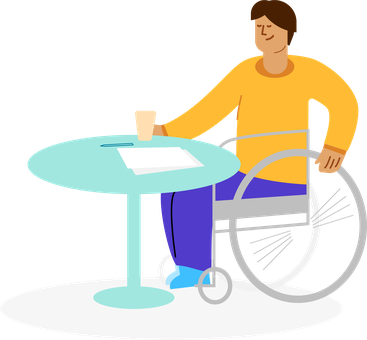A key element of the reforms is, via the Health and Care Bill, giving legal basis to integrated care systems (ICSs), which have been developing for several years. ICSs are place-based collaborative partnerships bringing together providers and commissioners of healthcare services across a defined geographical area. They collectively plan health and care services to meet the needs of their local population. The changes are also bringing with them a whole set of new abbreviations that we will need to get used to!
The formalisation of ICSs will mean:
- Clinical Commissioning Groups (CCGs), which have been the primary budget holders for NHS services since 2013, are being abolished and replaced with Integrated Care Boards (ICBs). These will be the new main local planning and funding body for NHS services. Each ICB will have a chair, CEO, stakeholders from local NHS providers, primary care services and local authorities. The fundamental role of ICBs will be the development of a five-year forward plan for how NHS services will be delivered to meet local needs. These must be informed by a consultation with the local ICS partners.
- Integrated Care Partnership (ICPs) will be established, alongside each ICB. These will be joint committees that focus on broader health and care services. The make-up of ICPs will include representatives from all the local authorities in the ICS and representation from the ICB. The ICP can also include representatives from other partners such as public health teams, housing services and the VCSE sector. The role of ICPs will be to develop integrated care strategies, setting out how the needs of the local population will be met (informed by local authorities’ joint strategic needs assessments). Although both ICBs and ICPs will set the strategic direction for ICSs, it will be ICBs that will make the spending decisions. And, whilst ICBs will be obliged to have regard to ICP integrated care strategies, there will be no obligation to enact those strategies.
This table from The Kings Fund summarises the new structure:

Simultaneous with Health and Care Bill’s progression through Parliament, the first dedicated NHS England Director of Health Inequalities, Dr Bola Owolabi, is creating a new approach, known as the Core20PLUS5 framework to ensure that proper priority is given to the health inequalities so starkly exposed by the pandemic. There is currently an opportunity to help to shape this approach by completing the questionnaire linked below. Dr Owolabi has required all ICSs to appoint executive leads for tackling inequalities in care. These will be critical people for homelessness services to engage with.
As well as the new bill and Core20PLUS5 approach, the government has also acknowledged that its levelling up agenda must include improving health and must be a cross-government agenda if it is to be fulfilled. In light of this, the DHSC-based Office for Health Improvement and Disparities (OHID) was launched on 1 October 2021, the aim of which is to help inform the cross-government agenda to track the wider determinants of health and reduce disparities.
The good thing about all this change is that it creates a space for influence. Now is the time to engage your ICS inequalities lead. You can be part of developing local health strategy to improve health outcomes for the people we work with that will eventually lead to better services and better funding.
If you want to get involved with this work:
- To find out who your local ICS inequalities lead is, contact your Homeless Link Partnership Manager (and if you’re not yet a Homeless Link member, join!).
- If your ICS inequalities lead is unsure of the health needs of their homeless population, direct them to research@homelesslink.org.uk to find out more about the Homeless Link Health Needs Audit - a tool for determining the health needs of local people experiencing homelessness.
If you want to find out more about what Homeless Link is doing on health and homelessness or about the HHC and HWA, or you want to tell us about the health-focused work you do with the people you work with, get in touch with me, Sue Christoforou via sue.christoforou@homelesslink.org.uk or 07375 042 814.
